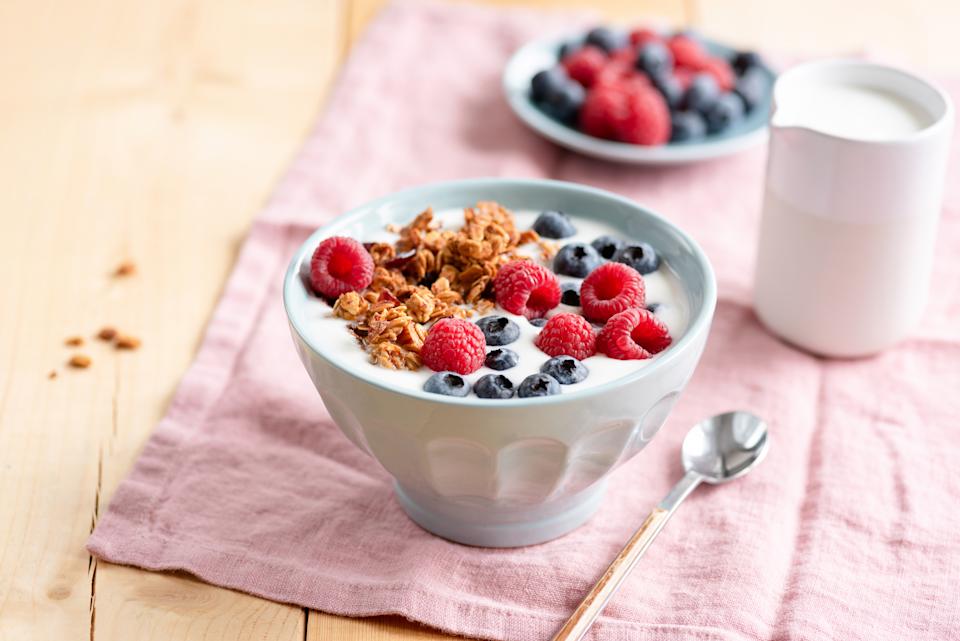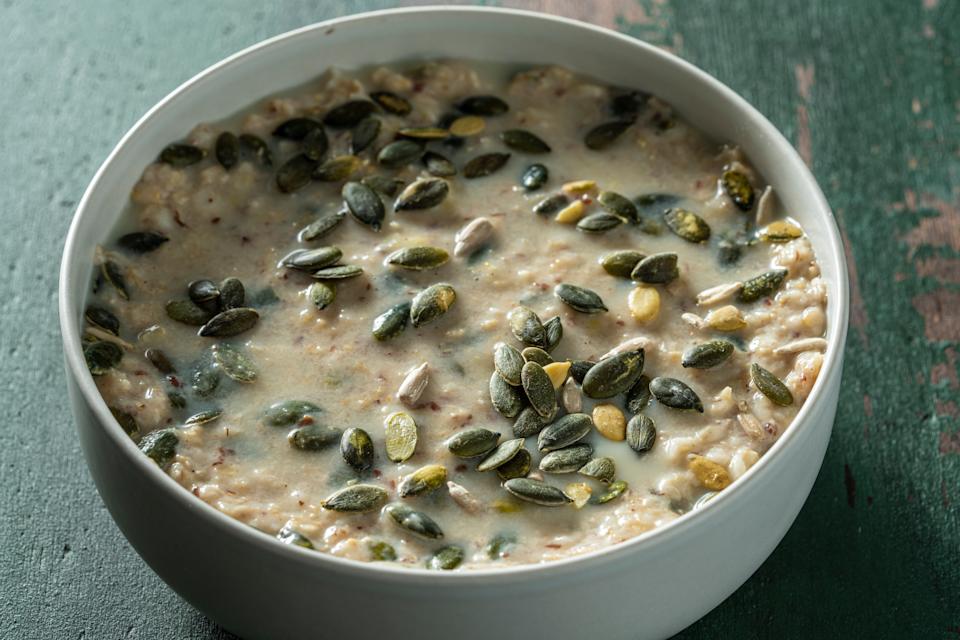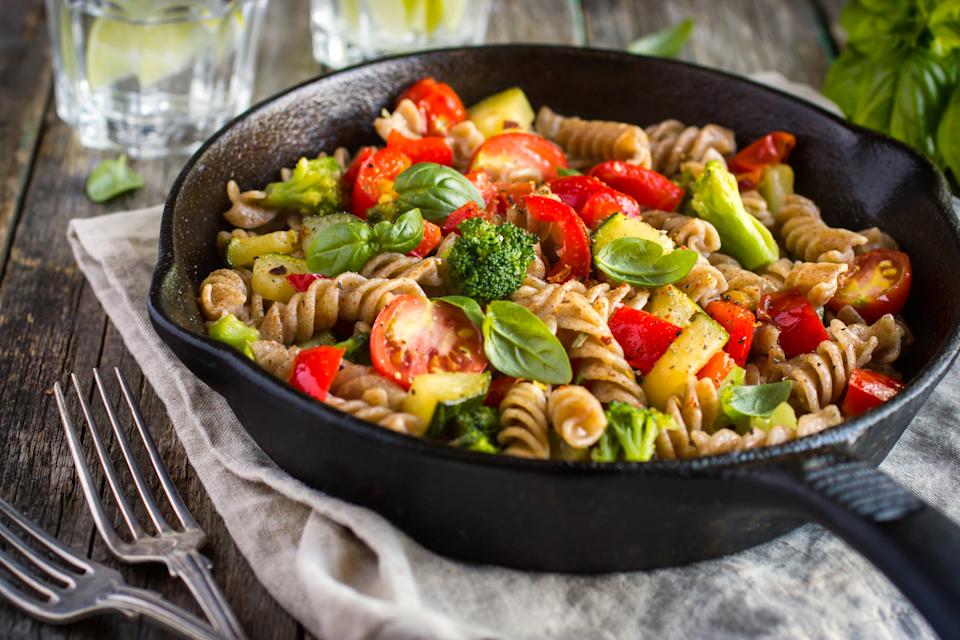Exams are in full swing, and keeping teens focused, energised, and calm is no small task. Alongside revision and rest, their diet can make a real difference.
What your teen eats before and during exam season can directly affect their energy, concentration, ability to stay sharp, and how they cope under pressure. Certain foods support brain function, memory, and mood in addition to keeping blood sugar stable and energy levels steady – precisely what’s needed while sitting a test.
Think omega-3 fats to keep the brain alert and fibre-rich whole grains to avoid sugar crashes before the afternoon exams begin. Whether it’s a protein-packed breakfast or a balanced lunchbox snack, the goal is to keep them fuelled and focused throughout the day. It’s likely you’ve already got plenty of these ingredients at home; it’s just about combining them in the right way.
“Food is not the only answer, but it’s a big part of it,” says Dr Lindsey Fellows, senior lecturer in nutrition and lifestyle medicine at the University of Worcester.
“Nutrition can be like a coat of armour during stressful times, but it needs to be habitual. We should think about brain-supporting foods all year round, not just during this period,” the registered nutritional therapy practitioner tells Yahoo UK.
Oily fish (like salmon, mackerel and sardines)A light lunchtime bite
Omega-3 fats are essential for brain health, so getting at least two portions a week is important. “They’re anti-inflammatory and support cognitive function, helping with memory and concentration,” says Dr Fellows.
Oily fish is also a source of high-quality protein, which provides amino acids the brain uses to make neurotransmitters — the chemical messengers that support memory, focus and mood.
If your teen isn’t a fan, try making salmon fishcakes. Tuna pasta and fish fingers aren’t quite as beneficial but far better than many other food alternatives. If your teen’s vegetarian, sprinkle flax or hemp seeds over their breakfast or into smoothies for an omega-3 hit.
YoghurtAn easy base for brain-boosting meals
Yoghurt is protein-packed and can be a nutrient-dense breakfast or snack base. “Combine with oats, nuts and berries for a simple meal you can prep the night before,” says Dr Fellows.
She suggests choosing natural yoghurt topped with chopped fruit and seeds. If your teen prefers something sweeter, drizzle a little honey or mix in grated apple. It’s all about combining as many brain foods as possible.

Yoghurt is a great base for a breakfast. Top with berries, seeds and oats to fill your teen up for the morning. (Getty Images)
EggsA high-protein breakfast win
Eggs are rich in protein and contain amino acids to support brain function. “A high-protein breakfast with eggs will provide slow-release energy and help maintain stable blood sugar levels throughout an exam,” says Dr Fellows.
Try boiled eggs with wholegrain toast or make an egg sandwich or an omelette. If mornings are rushed, hard-boiled eggs prepared ahead of time are ideal. “You can literally eat them like an apple,” says Dr Fellows.
Wholegrains (like oats, brown rice and wholemeal bread)Carbs that keep the brain ticking
Wholegrains provide slow-releasing carbohydrates that fuel the brain and help avoid energy crashes. “When blood sugar is erratic, concentration can waver,” Dr Fellows explains. “Wholegrains help keep energy steady for longer periods, exactly what you want during a 45-minute exam.”
Overnight oats are a brilliant breakfast option: pre-soak oats in milk or a plant-based alternative, add yoghurt, berries, and seeds, pop it all in the fridge, and grab a spoon the next morning. Wholemeal pasta, brown rice, or wholegrain wraps are ideal lunchbox additions, too.
Nuts and seedsTiny powerhouses for memory and mood
Walnuts, almonds, pumpkin and flax seeds are a small but mighty help during exam time. “Walnuts are especially good for the brain, containing plant-based omega-3 and antioxidants, and pumpkin seeds are rich in zinc, which supports memory,” says Dr Fellows.
Add them to porridge, mix into yoghurt, or toss into salads for an extra boost. “Pairing nuts or seeds with fruit can slow the release of natural sugars, helping to sustain energy levels,” she continues.

Adding walnuts, almonds, pumpkin and flax seeds to porridge or salad are an easy win during exams. (Getty Images)
Berries and citrus fruitA vitamin C boost in every bite
Rich in vitamin C and antioxidants, berries including blueberries and blackberries, and citrus fruits such as oranges, support immunity and mental focus.
“You can pair sliced apple with peanut butter to balance fruit sugars with protein, which slows down sugar release and keeps energy steady,” says Dr Fellows.
Frozen berries are a handy freezer staple and can be blended into smoothies or stirred into overnight oats.
Dark chocolateA smart sweet treat
Yes, snacking on some chocolate is allowed! “Dark chocolate contains phytonutrients with antioxidant properties that benefit the brain. If your teen wants a sweet treat, go for a small amount of dark chocolate with a handful of nuts to balance the sugar content,” says Dr Fellows.
A few squares of 70% dark chocolate with walnuts or a spoonful of peanut butter are better options than sugary cereal bars, which are often processed and high in refined sugars.
Leafy greens (like spinach, kale and broccoli)Veg that fuels focus
Dark greens are rich in fibre, vitamin C and antioxidants, all essential for optimal focus. “Broccoli ticks so many boxes. It supports immunity, concentration and blood sugar stability – all important during stressful periods like exams,” Dr Fellows explains.
Mix into pasta sauces, stir-fries or frittatas, or offer raw veg like pepper or carrot sticks as a snack. Even peas, she says, are a smart option: “Peas are high in protein, which people often don’t realise.”

Broccoli is one green leafy veg you definitely want in your teen’s diet. (Getty Images)
One more thing: Don’t forget water
“Water is so often overlooked, and it’s essential,” Dr Fellows says. “Avoid energy drinks and encourage teens to drink plenty of water before and during exams to support focus and alertness.”
Read more on brain health:
